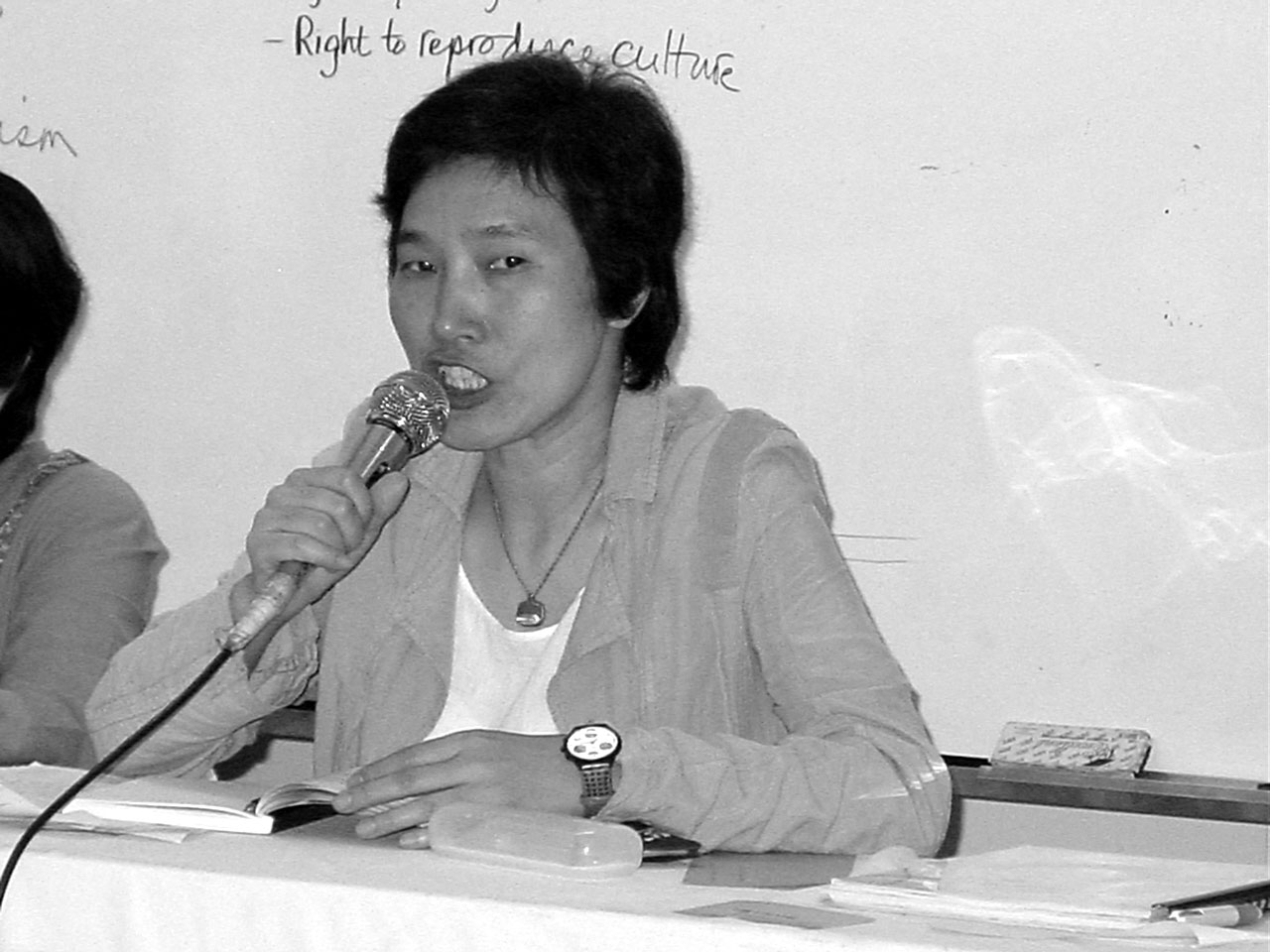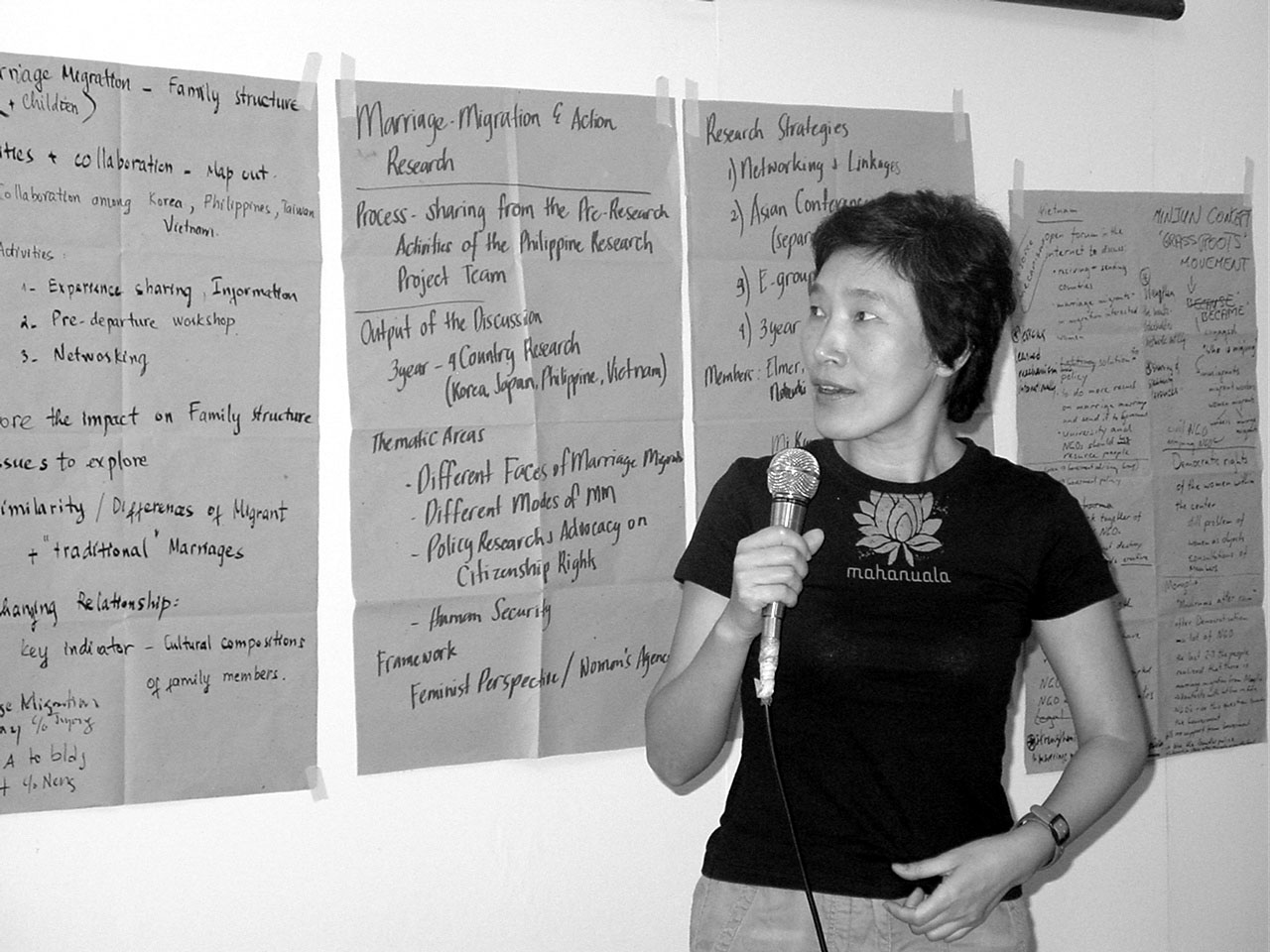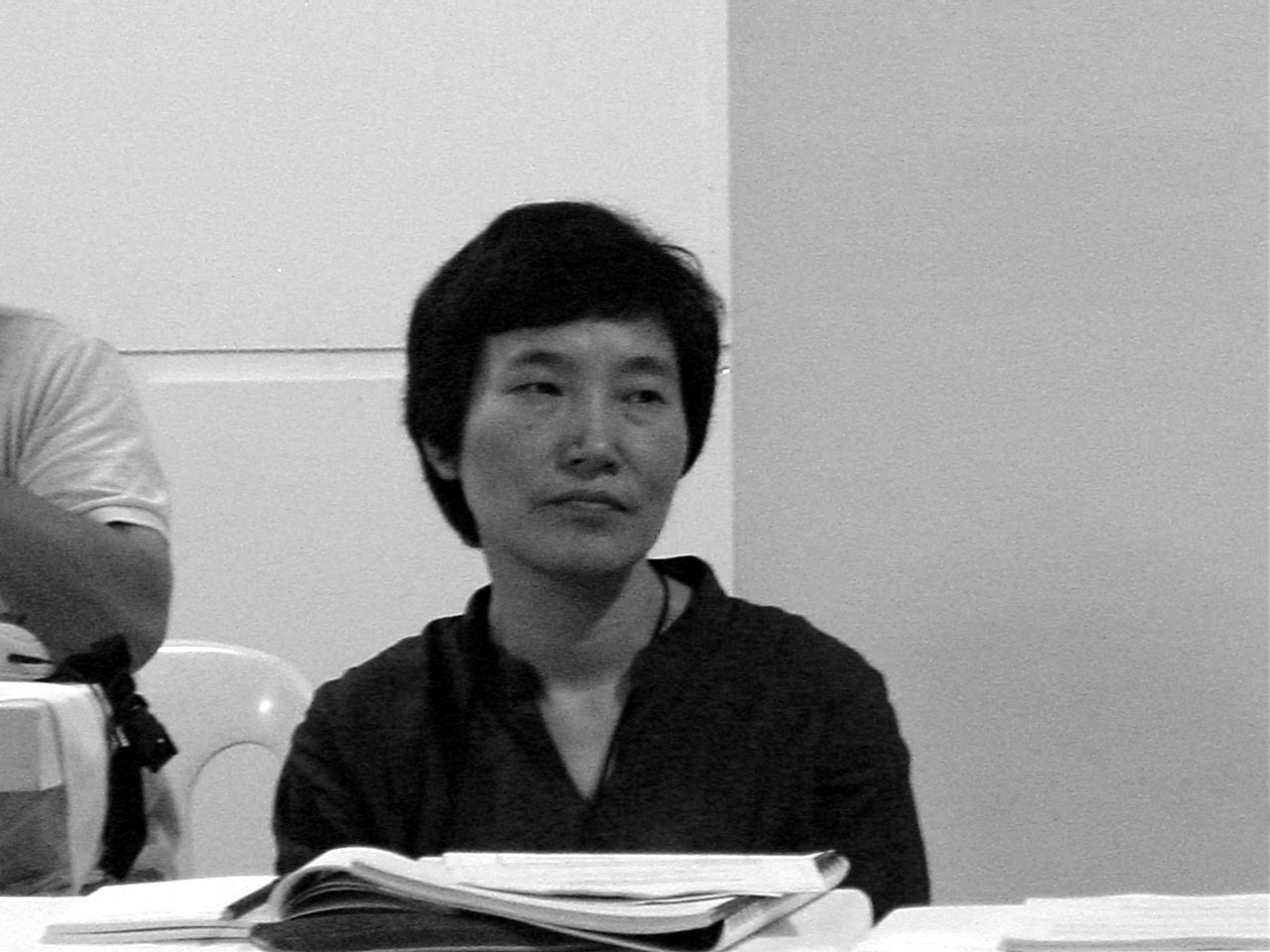New “Citizens” and Multiculturalism in Korea
How do we begin to co-exist with “the Others”
Nowadays, we can see tremendous growth of multinational capital, developments in information and transportation, and intense mobility of people on the global level. In the transnational and translocational context that this global mobility has brought about, we can also see the weakening of the state as a community in which political concerns decrease, and the welfare systems dwindle. At the same time, demands for the recognition of national, ethnic, and religious identities are growing more than ever. This contradicting and conflicting structure, which revealed its worst aspects in the 9/11 tragedy, has has questioned the existing liberal arguments on the justice of redistribution, and invoked new concerns on the politics of difference as well as the politics of recognition. Korean society, which too has been experiencing, albeit reluctantly, a rapid change into a multi-ethnic and multi-national society, is also struggling around the issues of difference and redistribution.
Since a few years ago, foreign migrants have attracted a great deal of attention. They started to come en masse to Korea as ‘industry trainees’ in 1991, and then as foreign immigrant brides, mostly from Southeast Asia in 2000. According to the statistics from the Ministry of Justice, the number of foreign migrants living in Korea is more than 910,000 as of 2006. As employment markets, marriage markets, and even areas of intimacy and caretaking are being restructured on the global level (Constable, 2005; Parrenas, 2001; Ehrenreich & Hochschild, 2002; Kim, 2006), Korean society is also going through some of the typical phenomena of globalisation.
...the number of Korean men who married foreign women has outrun that of Korean women who married foreign men. This means that, in a demographic sense, Korean society has been rapidly changing into a multicultural society, but with little cultural preparations.
The growth of feminist consciousness in Korea, which has been actively promoted not only as a knowledge production but also as a social movement for the last three decades, has resulted in the growth of women’s desire for employment. Moreover, the neo-liberal notion of agency, which implies self-improvement and self-governance (Ong, 2007), and the changes in the labour market, including the growing competitiveness of the knowledge-based society, make people regard marriage and childrearing as a “project.” This makes it hard for unprivileged men to find marital partners. Under these circumstances, since 1995, the number of Korean men who married foreign women has outrun that of Korean women who married foreign men. 1 This means that, in a demographic sense, Korean society has been rapidly changing into a multicultural society, but with little cultural preparations. However, the Korean government did not pay serious attention to its im/migration policies until the issues of aging and declining birth rates emerged as major political agendas.
To clarify theoretical contexts of the recent discourse on multiculturalism, this paper first explores the existing politico-philosophical theories on multiculturalism, and then analyses the policies regarding marriage migrant women, which have been implemented by the government as a policy response to the “multicultural society” under way.
Multiculturalism and Citizenship
Understanding of Culture and Discussions on Multiculturalism
 There are different approaches to multiculturalism depending on whether one uses it for political philosophy, government policies, or social movements. It also has different implications depending on the subjects, the understanding of culture, or the ranges and methods of its application. The notion of multiculturalism, which first emerged during the civil rights movements in the late ’60s and ’70s, especially in multi-ethnic societies such as the US, Canada, and Sweden, is closely related to the notion of the liberal democratic state with its emphasis on democracy and human rights. This is why the debates on multiculturalism consist mainly of challenges against the entire constitution of the modern society, and may imply post-modern subversions of modern society. Meanwhile, the critiques of multiculturalism by post-modern anthropologists, feminists, leftist thinkers and social activists start from criticising its understanding of culture. They argue principally that multiculturalism sees culture as a substance with fixed boundaries, and therefore essentialises and reifies it (Cowan, 2006; Benhabib, 2002). In this notion of multiculturalism, culture is an ensemble of various qualities and beliefs that a homogeneous society retains and hands down to the next generations—qualities and beliefs giving meanings to one’s life, and determining one’s social behaviour. This notion of multiculturalism, which assumes the essential relatedness between culture, territory and community, could regard the violence or the crimes foreign migrants face as cultural peculiarities, and thereby reproduce the oppression in the communities of migrants towards “the dissent” (Okin, 1999; Benhabib, 2002).
There are different approaches to multiculturalism depending on whether one uses it for political philosophy, government policies, or social movements. It also has different implications depending on the subjects, the understanding of culture, or the ranges and methods of its application. The notion of multiculturalism, which first emerged during the civil rights movements in the late ’60s and ’70s, especially in multi-ethnic societies such as the US, Canada, and Sweden, is closely related to the notion of the liberal democratic state with its emphasis on democracy and human rights. This is why the debates on multiculturalism consist mainly of challenges against the entire constitution of the modern society, and may imply post-modern subversions of modern society. Meanwhile, the critiques of multiculturalism by post-modern anthropologists, feminists, leftist thinkers and social activists start from criticising its understanding of culture. They argue principally that multiculturalism sees culture as a substance with fixed boundaries, and therefore essentialises and reifies it (Cowan, 2006; Benhabib, 2002). In this notion of multiculturalism, culture is an ensemble of various qualities and beliefs that a homogeneous society retains and hands down to the next generations—qualities and beliefs giving meanings to one’s life, and determining one’s social behaviour. This notion of multiculturalism, which assumes the essential relatedness between culture, territory and community, could regard the violence or the crimes foreign migrants face as cultural peculiarities, and thereby reproduce the oppression in the communities of migrants towards “the dissent” (Okin, 1999; Benhabib, 2002).
...multiculturalism tends to dangerously define the notions of the majority and the minority as a dichotomy, something that could therefore solidify the privileged status of the majority while keeping the minority marginalised.
Secondly, multiculturalism emphasises one single closed group identity in terms of ancestors, blood lineages, cultural rituals, or behaviour and therefore could produce biases against, for example, those migrants who are actively involved in cultural formations in their host society (Cheon, 2006). Thirdly, multiculturalism is a top-down policy and can be nothing but a clever strategy for managing social minorities. Even when the government does not intentionally use approaches of multiculturalism for the purpose of concealing socio-political inequalities, reading socio-economic problems as cultural ones could lead to reductionism. Lastly, multiculturalism tends to dangerously define the notions of the majority and the minority as a dichotomy, something that could therefore solidify the privileged status of the majority while keeping the minority marginalised.
These discussions on multiculturalism tell us that we need a deeper understanding of culture and cultural identity. We need to further understand that culture is not a fixed reality. It is something creative, ever-changing, hybrid and pervasive. It is an arena in which relationships, agency, and power operate simultaneously constituting identities.
Recognition and Redistribution in Multiculturalism
Advocates of multiculturalism argue that the mainstream is beneficial only to the majority, and as a result, harms the minority in terms of its behaviour and identity. This argument implies that discussions on multiculturalism are based on critical reflections on injustice. Discussions on the marginalised groups of people in the capitalist democratic societies have developed along two categories: redistribution and recognition. Emphasising the interdependency between redistribution and recognition, Nancy Fraser argues that justice is the “participatory parity” which means that the remedy for injustice is the deconstruction of the institutionalised obstacles which prevent one from participating as a peer in social interactions (Fraser, 2003: 7-109). We can call it the guarantee of the rights to membership, or to active citizenship. However, the recent government-led campaign on multiculturalism in Korea does not assume a membership/ citizenship in which foreign migrants can participate “as peers” in social interactions. Nor does it perceive that citizenship itself is gendered.
Multiculturalism and Citizenship
The discussions on citizenship, which re-emerged in the 1990s, have tried to incorporate the liberal notion of justice, which emphasises each citizen’s individual rights based on civility, with participatory practices of community members. The notion of a citizen involved in participatory practices has been driven by emancipatory interests and political ideals, and has also expanded the definition of citizenship. But some critics, given that numerous immigration/residence-related issues have been brought about by the increased global mobility of people, say this expansion itself has compromised the usefulness of the notion of citizenship as an analytical category (Lee, 2004). Understanding a legally equal status and citizenship as a totality of rights and duties can be useful under certain conditions. Today, for example, we can see the increase of residents with blurry boundaries, and aptly refer to them as as denizens and margizens.
However, we should note that access to an official citizenship, or naturalisation, is only the first step towards full membership (Castles & Davidson, 2000: 127). To understand the notion of full membership, we need to distinguish between a national and a citizen. As the recent notion of a global citizen shows, being a citizen connotes having agency that actively constitutes a civil society independent from a nation-state, while being a national means being a passive subject who is subject to her or his own nation-state, and cannot exist beyond national boundaries (Joo, 2006: 49). From these perspectives, a foreign migrant can first become a national by naturalisation (or a permanent resident), and then, through a long process of struggle, obtain citizenship or become a participatory subject.
Gendered Citizenship and Marriage migrant Women
In Korea, the government’s support for the marriage migrant women is concentrated almost exclusively on teaching Korean language and culture. What these women really need, however, is a secure legal status and recognition as full members of Korean society. Normally, these women are subordinated to their husbands and in-laws, their legal status far from stable. For example, they are supposed to be accompanied by their husbands when applying for naturalisation, for assurance their marriage is “authentic.” They are banned from getting a job in the course of filing a divorce suit. Since June this year, the local governments have been implementing the “International Marriage Subsidy Programmes for Farmers and Fishermen” in order to secure the “family” in the rural areas, in collaboration with commercial matchmaking brokers. By doing this, local governments encourage trafficking-like international marriages and commercialisation of women, rather than regulating those matchmaking agencies that violate human rights. Whether or not a marriage migrant woman Whether or not a marriage migrant woman can enjoy membership in Korean society depends on whether or not she fulfills what the society expects of her: the making of a “family” through hard work and childrearing.
can enjoy membership in Korean society depends on whether or not she fulfills what the society expects of her: the making of a “family” through hard work and childrearing. The Ministry of Justice is now reviewing a bill which, if enacted, allows easy application of naturalisation, i.e., without extra exam, for the marriage migrant women who complete “social integration courses” including courses of language and culture. As long as taking these “services” becomes mandatory for naturalisation or permanent residence, these services can only constrain these migrant women under patriarchal management (Kim, 2007: 248).
Looking at the central and the local government policies regarding marriage migrant women, we cannot help asking from what perspectives the governments view these women. As long as governments “recognise” them only as “wives” and as “mothers” of some future nationals, but not as nationals themselves with equal rights and duties nor as active members of society, all the educational courses and ser vices provided them are nothing but policies for coercive assimilation. This is why the government-led multiculturalism is in fact a step away from “recognition” which is supposed to be its essence.
Conclusion
 For multiculturalism to take root in Korean society, not only as policy of government but also as an attitude of society members to the ‘foreigners’, we need more experiments, practices, as well as deeper theoretical discussions. Korean society, which is still dominated by a strong sense of homogeneity and by confucian patriarchal traditions, has to understand foreign migrants from the perspectives of citizen-subjects. If multiculturalism, not assimilation, is the goal, we need to discuss more comprehensively the issues of justice in relation to redistribution and recognition, the understanding of citizenship in this global era, cultural rights and gender rights as civil rights. This paper is a small effort to jumpstart the discussion. I hope many more discussions will follow.
For multiculturalism to take root in Korean society, not only as policy of government but also as an attitude of society members to the ‘foreigners’, we need more experiments, practices, as well as deeper theoretical discussions. Korean society, which is still dominated by a strong sense of homogeneity and by confucian patriarchal traditions, has to understand foreign migrants from the perspectives of citizen-subjects. If multiculturalism, not assimilation, is the goal, we need to discuss more comprehensively the issues of justice in relation to redistribution and recognition, the understanding of citizenship in this global era, cultural rights and gender rights as civil rights. This paper is a small effort to jumpstart the discussion. I hope many more discussions will follow.
Endnote
1 According to the Korean National Statistical Office, the number of international marriages in Korea from 1990 to 2005 is 240,755. Among them, marriages between Korean men and foreign women are 159,942, and the rest 80,813 marriages are those between Korean women and foreign men (Seol Lee Joo, 2006: 3).
References
Benhabib, S. (2002). The claims of culture : Equality and diversity in the global era. Princeton, N.J.: Princeton University Press.
Castles, S. and Davidson, A. (2000). Citizenship and migration: Globalisation and the politics of belonging. London and New York, Routledge.
Constable, N. (ed.). (2005). Cross-border marriages: Gender and mobility in transnational Asia. Philadelphia: University of Pennsylvania Press.
Cowan, J. K. (2006). “Culture and rights after culture and rights.” American Anthropologist, 108 (1), 9-24.
Ehrenreich, B. and Hochschild, A. R. (eds.). Global women: Nannies, maids & sex workers in the new economy. N.Y.: Metropolitan Books, Henry Holt & Company.
Fraser, N. and Honneth, A. (2003). Redistribution or recognition? A Political-philosophical exchange. (J. Golb,
J. Ingram, C. Wilke, Trans.). London and New York: Verso.
Okin, S. M. (1999). “Feminism and multiculturalism: Some tensions,” in Avnon, D. and de-Shalit, A (eds.), Liberalism and its practice. London and New York: Routledge.
Ong, A. (2007). Neo-liberalism as exception: Mutations in citizenship and sovereignty. Durham and London: Duke Universtiy Press.
Parrenãs, R. S. (2001). Servants of globalisation: Women, migration and domestic work. Stanford University Press.





 The
The 
 Isis Resource Center holds one of the largest feminist collections of materials in the Global South. With 40 years of publication experience, Isis holds a vast collection.
Isis Resource Center holds one of the largest feminist collections of materials in the Global South. With 40 years of publication experience, Isis holds a vast collection.